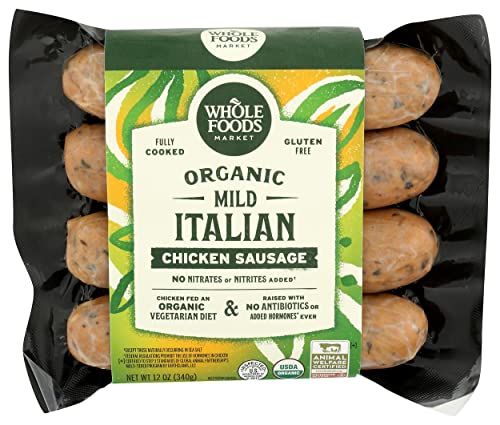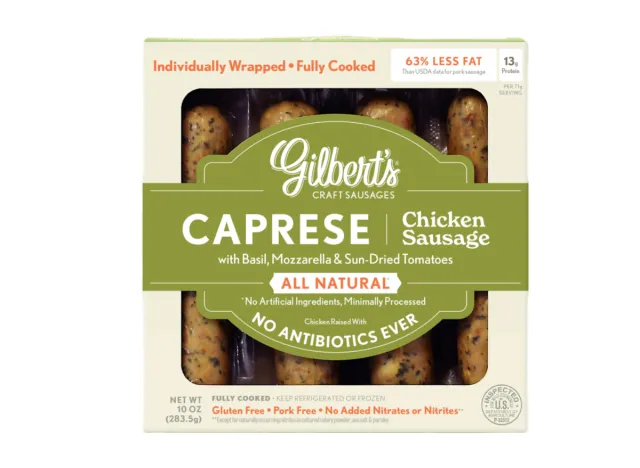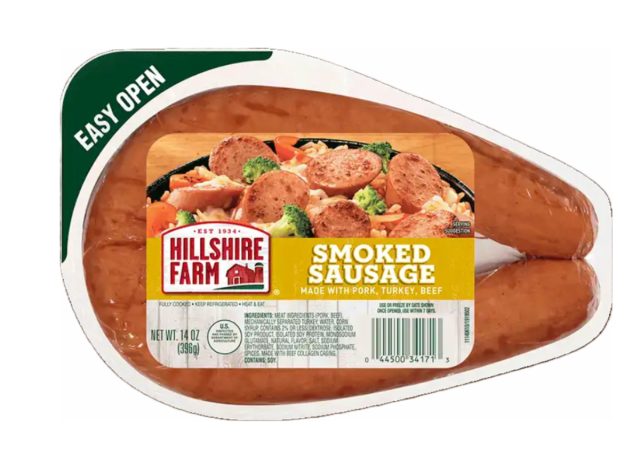With the rise in popularity of high-protein diets sausage has become a go-to breakfast lunch, or dinner choice for many. But when it comes to nutrition, not all sausages are created equal. Traditional pork sausage can be high in saturated fat and sodium. So for those looking for a healthier alternative, the two top options are turkey sausage and chicken sausage. But when comparing turkey sausage versus chicken sausage, which comes out on top in terms of nutrition?
Below we dive into the differences between turkey sausage and chicken sausage to determine which variety edges out the other in categories like calories fat content, sodium levels taste, and more.
Calorie and Macronutrient Comparison
First, let’s look at the basic calorie and macronutrient breakdown of turkey sausage versus chicken sausage
-
Calories – Chicken and turkey sausages are neck and neck when it comes to calories. One link of either (around 44g) contains approximately 140-160 calories. This makes both options far lower in calories compared to one link of pork sausage which packs about 290-455 calories.
-
Fat – Turkey sausage just barely beats out chicken sausage when comparing fat content. Turkey sausage contains around 7-10 grams of total fat per link compared to 8-10 grams in chicken sausage. However, this small difference makes turkey sausage the slightly leaner choice.
-
Saturated Fat – Again, turkey sausage inches out chicken sausage in the saturated department. Turkey sausage has roughly 2.5 grams of saturated fat per link versus 3 grams for chicken. So turkey wins for heart health.
-
Carbohydrates – Chicken sausage contains a few more carbs than turkey, with around 8 grams versus less than 1 gram per link. However the grams of carbohydrates are negligible in both varieties.
-
Protein – Turkey sausage contains slightly more protein than chicken, with approximately 17 grams versus 12 grams per link. So turkey is the better option for boosting protein intake.
Vitamin and Mineral Analysis
In addition to macronutrients, turkey and chicken sausage differ slightly in their vitamin and mineral content:
-
Turkey sausage is rich in selenium, an antioxidant that supports thyroid and immune health.
-
Chicken sausage contains more iron and zinc which aid in oxygen transport and immune function.
-
B vitamins like niacin and vitamin B6 are abundant in both turkey and chicken sausage.
So in terms of micronutrients, it’s a mixed bag with both options providing valuable vitamins and minerals.
Sodium Comparison
Like most processed and pre-cooked sausages, sodium content is elevated in both turkey and chicken varieties. However, turkey sausage generally contains a bit less sodium than chicken:
- Turkey sausage – 670mg sodium per link
- Chicken sausage – 740mg sodium per link
While not a huge difference, those limiting sodium may favor turkey sausage in their diet. But both should be eaten in moderation by anyone with hypertension or heart issues.
Ingredient Quality Considerations
When comparing nutrition, it’s important to also consider the quality of ingredients used in turkey versus chicken sausages:
- Opt for turkey or chicken sausage with minimal added sugars or suspicious additives.
- Look for sausages made with whole, natural spices for flavor rather than artificial ingredients.
- Choosing organic turkey or chicken sausages ensures no hormones or antibiotics were used.
Higher quality ingredients make either chicken or turkey a healthier choice.
Cooking Methods
How you prepare and cook sausage also affects its nutritional quality. Healthier cooking methods include:
- Grilling – Allows fat to drip away from the sausage.
- Baking – Avoid adding extra fat or oils.
- Pan-Frying – Use a non-stick pan and minimal oil to avoid excess grease.
Deep-frying or preparing in fatty/salty sauces negates some of the health benefits of turkey and chicken sausage.
Flavor Profiles
One final consideration is the variety of flavors available in each:
- Turkey sausage – Comes in breakfast, sweet Italian, hot Italian, bratwurst, chorizo, and more.
- Chicken sausage – Offered in Italian, apple, spinach artichoke, cajun, mango habanero, and more unique flavors.
So both provide plenty of flavor choices to suit any tastebuds. Trying out different seasonings can prevent you from getting bored with one or the other.
The Verdict: Slight Edge to Turkey
When all factors are considered, turkey sausage seems to have a slight nutritional advantage over chicken sausage:
- Fewer calories and less fat per serving compared to chicken sausage
- Higher amounts of protein per link
- Lower sodium counts
- Unique benefits from selenium
However, the differences are small. Those who prefer the flavor of chicken sausage can still reap nearly identical health benefits to turkey varieties.
As long as you read labels to pick quality ingredients and use healthy cooking methods, both turkey and chicken sausage make for far better choices over pork in terms of nutrition, fat content, and sodium. Moderating portion sizes remains key to prevent overdoing it on calories, saturated fat, or sodium. But overall both turkey and chicken sausage can be included as part of a healthy, well-rounded diet.

Gilbert’s Craft Caprese Chicken Sausage

Gilberts Craft Caprese Chicken Sausage has a moderate amount of sodium, with each link containing 530 milligrams of sodium, or 22% of the recommended daily limit. “Their packaging also sets them apart from other sausage brands because each sausage is individually wrapped, which makes them a great option if you only need one or two sausages at a time,” says Nadeau. “Instead of opening an entire package, you can just grab what you need.”
Hillshire Farms Smoked Sausage

“Hillshire Farms Smoked Sausage includes ingredients like mechanically separated turkey, which can be a concern due to its high processing and potential loss of nutritional value,” says Hulsey. “While its important to enjoy sausage in moderation, I recommend exploring alternative options that prioritize leaner cuts of meat and minimize the use of artificial additives for a healthier and more balanced diet.”
Ep. 20: Is Turkey and Chicken Sausage Making You FAT? | #FoodTipsYouCrave
FAQ
Is turkey sausage or chicken sausage healthy?
What is the healthiest sausage you can eat?
Is chicken sausage actually healthy?
Is turkey sausage considered processed food?
